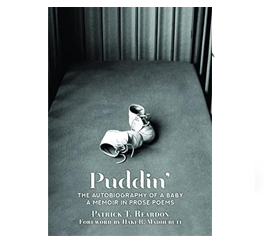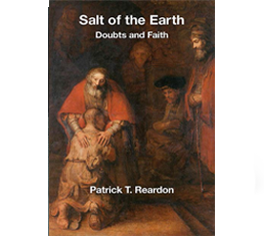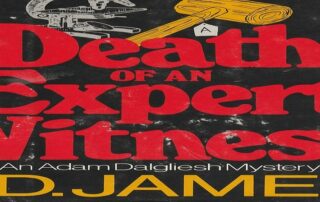Book review: “The Glorious Pool” by Thorne Smith
The Glorious Pool, with the salaciously seductive image of a nude woman on the cover, is a screwball comedy of a novel about a fountain — er, pool — of youth. Published at the start of 1934, just a few months before the death of[...]
Patrick T. Reardon
Patrick T. Reardon is a Chicagoan, born and bred. He is a poet, essayist, journalist and expert on the history of Chicago. He is the author of six poetry collections, a history of Chicago’s elevated loop and downtown and seven other books. For 32 years, he was a reporter for the Chicago Tribune, specializing in urban affairs and the book industry.
Praise For Patrick T. Reardon’s Writing
“It’s not a hyperbolic stretch by any means to say that Patrick T. Reardon’s Puddin’: The Autobiography of a Baby, is not only the most improbable and intriguing personal account by a writer published in 2022, but quite possibly the most ingeniously imagined memoir by any writer in any given year.
“Empathetic readers will want to reach right down through these pages [of Puddin’] and pick up this baby who’s longing for it. Despite the fact that we’re experiencing this journey through words on the page, and even though those words were written by the fully grown version of this baby, we long the fill the void in what we are reading. In this baby persona’s blank lack, we discover our own.”
“Requiem for David is the heart’s howl, a passage through mourning, a lesson ultimately in learning how to walk alongside pain with grace. We cannot avoid the dark night of the soul, but if we don’t walk through it, we can never reach the light.”
“Patrick T. Reardon’s The Loop is a wonderfully engaging study that goes well beyond a descriptive historical account to tell us how much this remarkably dynamic piece of urban transportation planning and engineering has meant and continues to mean to Chicago and Chicagoans. The book is one of those exceptional works that enables us to see something that is right under our noses for the first time.”
“Patrick T. Reardon’s epic poem The Lost Tribes is a cri du coeur as thrilling for our time as Alan Ginsberg’s Howl was for his. It celebrates the lonely and the desperate, the forgotten and ignored, the poor, the working class, and the lucky but lost Americans the author finds “in the land of milk and honey,/in the barber shop mirror,/in the electric hours before dawn,/in all that is seen and unseen…
“For this stunning collection [Darkness on the Face of the Deep], Patrick T. Reardon has chosen as title a line out of Genesis, as reworked by Bob Dylan. That mesh makes sense: in an incantatory voice all his own, Reardon manages to mix the local and the oracular at every turn of phrase. The poems teem with road names, ordinary and overtoned: Randolph Street, Clark Street, Proverb Street, Ecclesiastes Road. What happens on and by those roads can feel, in Reardon’s capacious geography, like everything that has ever mattered in human history (“Bull Run, Fort Dearborn, Agincourt”) and in literature too (“all sagas and Iliads, all Great White Whales”). Like many of our most astonishing poets, from Homer to Ginsberg, Reardon knows how to make the sacred gritty and the gritty sacred.”
The Loop is simply great fun! Patrick T. Reardon takes his reader on a wild ride through the construction of the Loop as well as the ways Chicagoans think about it.”
“Detail by razor-sharp detail, perception by vivid perception, recollection by haunting recollection, Patrick T. Reardon’s Requiem for David gathers into the force of a cri de coeur.”
“I have never read a book like Puddin’, and I’ve read tens of thousands of them….It is unique. It is heartfelt. It is remarkable, in a word…One comes out of this book, as I did, unable to look at a baby the same way again, if not to interrogate every baby I see, ‘What are you thinking?’ You’ll be able to read it in an hour, and it’ll change your life in ways small and perhaps even large.”
“In Darkness on the Face of the Deep, Patrick T. Reardon’s poems grapple with the depths—ours. His poems take us on Job’s journey. There are writers who risk such paths: Franz Wright, Rilke, Mary Karr, and Patrick Kavanaugh, for example. But few dare such vulnerability for fear of getting lost in wrestling with their own inner doubts and demons. In short, Reardon goes there.”
“The poems [in Requiem for David] are so raw, simple and direct as they grapple with broken lives that many of them are difficult to read. Reardon’s writing is spare and not rooted in images so much as a cascade of feelings. He describes two kinds of communion he had with his brother: “We were skin of blood, blood of blood./ We were the same raw slash.” And, later, “Your death/ Your death/ Tore me/ Open like/ The baby/ Was coming/ Out.”










